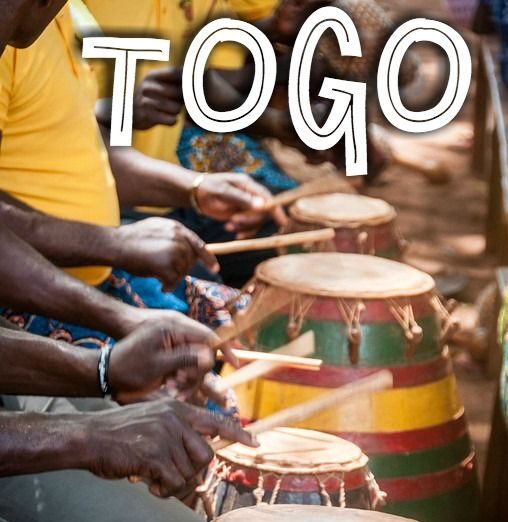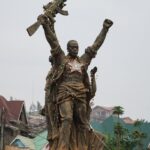Fascinating Facts About Togo That Will Surprise You
Togo, a small yet culturally rich country in West Africa, is often overlooked on the global stage. Despite its modest size, Togo offers a compelling mix of history, diverse landscapes, and vibrant traditions. From its bustling markets to its serene beaches and mountains, Togo is a nation with deep cultural roots and fascinating stories.
This article explores Togo’s history, important facts, timeline, cultural significance, FAQs, daily life impacts, and societal importance, all presented in a human-friendly tone to make the information relatable and engaging.
History of Togo
Togo’s history is layered and reflects the influences of indigenous kingdoms, European colonization, and modern political development:
Pre-Colonial Era: Before European arrival, the region was home to several ethnic groups such as the Ewe, Kabye, and Mina, each with their own governance systems, languages, and cultural practices.
16th Century: Portuguese traders were among the first Europeans to arrive, establishing trade networks along the coast.
19th Century: German colonization began in 1884, turning Togo into a protectorate known as Togoland. German influence included infrastructure, education, and administration.
World War I: Togoland was invaded by British and French forces in 1914. After Germany’s defeat, the territory was split into British and French mandates under the League of Nations.
1960: Togo gained independence from France on April 27, 1960, with Sylvanus Olympio becoming the first president.
Late 20th Century: Togo experienced periods of political instability, coups, and authoritarian rule, particularly under Gnassingbé Eyadéma, who ruled from 1967 to 2005.
Modern Era: Togo has gradually embraced democratic reforms, though challenges remain in governance, human rights, and economic development.
Key Facts About Togo
Capital and Major Cities: Lomé is the capital and largest city, while other major cities include Sokodé, Kara, and Atakpamé.
Population: Approximately 8 million people, with a diverse mix of ethnic groups and languages.
Official Language: French is the official language, but Ewe, Kabye, and several other indigenous languages are widely spoken.
Geography: Togo stretches along the Gulf of Guinea and is known for its mountains, plateaus, and coastal plains.
Economy: Agriculture dominates, with cocoa, coffee, and cotton as key exports. Togo also has phosphate mining and small-scale manufacturing.
Religion: The population practices a mix of Christianity, Islam, and indigenous beliefs.
Cultural Heritage: Traditional music, dance, and festivals are central to Togolese life.
Climate: Tropical in the south, savannah in the north, with a wet season from April to October.
Biodiversity: Togo has national parks such as Fazao-Malfakassa and Kéran, protecting diverse wildlife including elephants and monkeys.
Political Structure: Togo is a republic with a president as head of state and a multi-party system, though political challenges persist.
Timeline of Togo
Pre-1500s: Indigenous tribes inhabit the region.
16th Century: Portuguese traders establish trade posts.
1884: Germany claims Togo as a protectorate.
1914: British and French forces divide Togoland during World War I.
1922: League of Nations mandates formalize the division; Togo under French administration.
1946: Becomes a United Nations trust territory under French oversight.
1960: Togo gains independence from France.
1963: First president Sylvanus Olympio assassinated in a coup.
1967–2005: Gnassingbé Eyadéma rules, shaping modern Togo.
2005–Present: Transition to multi-party democracy, ongoing reforms, and international engagement.
Significance of Togo
Togo’s significance lies in its cultural, historical, and economic contributions:
Cultural: Togo preserves unique West African traditions, music, and festivals that attract researchers and tourists.
Economic: Agriculture, mining, and trade play important roles in regional economic stability.
Historical: The country’s colonial and post-independence history reflects broader African struggles for autonomy and democracy.
Tourism: Coastal beaches, traditional villages, and mountainous landscapes provide diverse travel experiences.
Social Cohesion: Despite ethnic diversity, traditional customs and community life strengthen national identity.
Daily Life Impacts
Understanding Togo’s culture and geography influences daily life for both residents and visitors:
Agricultural Life: Many Togolese engage in subsistence and commercial farming, relying on seasonal cycles and traditional knowledge.
Urbanization: Lomé and other cities provide jobs in services, trade, and small-scale industry.
Education: French-language schools coexist with community education programs, shaping literacy and skills development.
Healthcare: Limited infrastructure in rural areas makes awareness and preventive healthcare essential.
Cultural Practices: Music, dance, and festivals play a central role in social cohesion and daily celebration.
Observance and Important Points
When engaging with Togo’s society, culture, or travel, keep these considerations in mind:
Respect Local Customs: Greetings, traditional attire, and rituals are highly valued.
Language Awareness: Knowing basic French or local greetings enhances interactions.
Festivals and Cultural Events: Participate respectfully to appreciate Togolese heritage.
Environmental Responsibility: Preserve beaches, parks, and traditional village areas.
Safety and Health: Observe travel advisories, vaccination requirements, and sanitation guidelines.
Economic Sensitivity: Support local artisans, markets, and sustainable businesses.
FAQs About Togo
Q1: What is Togo famous for?
A: Its cultural heritage, tropical beaches, national parks, and traditional music and festivals.
Q2: Can visitors explore Togo’s natural beauty safely?
A: Yes, with proper guidance, local knowledge, and adherence to safety protocols.
Q3: What languages are spoken in Togo?
A: French is official, with Ewe, Kabye, Mina, and other local languages widely used.
Q4: What are Togo’s major exports?
A: Cocoa, coffee, cotton, and phosphate are key exports.
Q5: Is Togo politically stable?
A: Togo has experienced political challenges, but reforms and democratic processes are ongoing.
Social and Cultural Significance
Togo’s cultural and societal importance is vast:
Cultural Preservation: Traditional music, dance, and art are passed through generations.
Education and Research: Universities and cultural institutions preserve history and support learning.
Community Life: Traditional leadership and communal living promote cohesion and identity.
Tourism Development: Cultural festivals, historical sites, and natural parks provide global engagement opportunities.
Wishing and Inspirational Perspective
Togo inspires admiration for its resilience, diversity, and cultural richness:
Personal Growth: Exposure to Togolese traditions enhances cultural understanding and empathy.
Travel Inspiration: Exploring Togo’s landscapes and heritage fosters adventure and curiosity.
Global Awareness: Learning about Togo contributes to understanding Africa’s diverse histories and societies.
Community Connection: Engagement with local practices nurtures respect, responsibility, and social awareness.
Conclusion: Importance in Daily Life and Society
Togo, though small in size, holds immense cultural, historical, and natural significance. Its rich traditions, historical experiences, and natural landscapes make it a unique contributor to West African and global society.
Understanding Togo’s history, facts, and social dynamics enriches travelers’ experiences, strengthens educational knowledge, and promotes cross-cultural respect. Residents benefit from agriculture, community life, and cultural practices that shape everyday life, while visitors gain an immersive experience of West African heritage.
Ultimately, Togo exemplifies the power of resilience, cultural pride, and environmental beauty, teaching lessons about history, society, and the importance of preserving traditions for future generations. By appreciating and respecting Togo’s unique identity, individuals can explore, learn, and contribute positively to its continued development.








